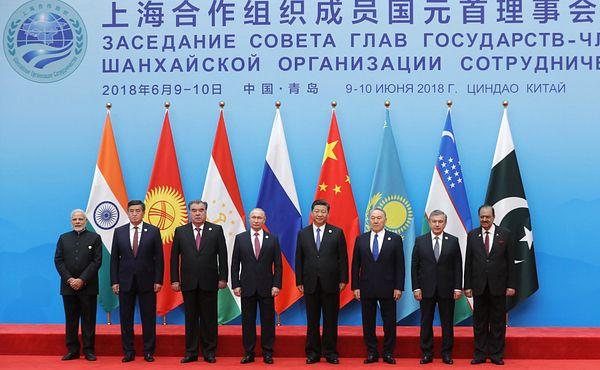At the recent Shanghai Cooperation Organisation (SCO) summit, India made headlines by choosing not to endorse the joint statement issued by member countries. This unexpected move highlights growing complexities within the regional bloc as India asserts its independent stance amid evolving geopolitical dynamics. The decision, confirmed by official sources, underscores underlying tensions and differing priorities among the SCO nations, marking a significant development in the organization’s ongoing efforts to foster cooperation across Eurasia.
India’s Strategic Concerns Lead to Withholding Endorsement at SCO Summit
India’s decision to withhold endorsement at the SCO summit highlights the complexities underlying its regional strategy and diplomatic priorities. Despite active participation, New Delhi opted out of signing the joint statement, signaling concerns over issues that were perceived as inconsistent with its national interests. Officials pointed towards disagreements on key topics such as counterterrorism definitions and the approach towards regional conflicts, which remain sensitive given India’s security environment.
Key factors influencing India’s stance include:
- Territorial disputes: Ongoing border tensions with neighboring SCO members have fueled cautious engagement.
- Security priorities: Differences over how to tackle terrorism and respect sovereignty impacted consensus.
- Geopolitical alignments: India’s balancing act between SCO member states and its global partnerships.
| Issue | India’s Position | Impact on SCO |
|---|---|---|
| Counterterrorism | Stricter definitions and focus on cross-border terrorism | Delay in unified approach |
| Border Security | Firm stance on border integrity | Heightened tensions |
| Regional Cooperation | Selective engagement based on mutual trust | Conditional collaboration |
Analyzing the Implications of India’s Decision on Regional Cooperation and Security
India’s decision to withhold its endorsement at the Shanghai Cooperation Organization (SCO) summit signals a notable shift in the dynamics of regional collaboration. This move highlights New Delhi’s growing caution towards multilateral consensus when perceived national interests might be compromised. Observers suggest that India’s stance reflects concerns over ambiguities within the joint statement concerning security cooperation, particularly in relation to China’s expanding influence and Pakistan’s role within the organization.
Such a refusal introduces several implications for South and Central Asia’s geopolitical landscape. It raises questions about the effectiveness and cohesion of the SCO framework, especially as member states increasingly juggle bilateral ties against collective commitments. Key impacts include:
- Strained diplomatic ties: Potential for increased friction between India and other SCO members, complicating dialogue mechanisms.
- Security coordination challenges: Reduced unanimity in counterterrorism and border security initiatives.
- Shift towards bilateralism: India may prioritize direct engagements over multilateral platforms.
| Aspect | Potential Outcome |
|---|---|
| Regional Security | Fragmented cooperation, diminished trust |
| Economic Integration | Slower progress on joint projects |
| Diplomatic Engagement | Increased emphasis on bilateral talks |
Recommendations for Addressing Divergent Interests Within the Shanghai Cooperation Organisation
To effectively manage the varying national priorities that challenge cohesion within the SCO, member states must deepen engagement through structured diplomacy and inclusive dialogue. Establishing dedicated working groups focused on conflict resolution and mutual interests could foster transparency and trust, thereby narrowing gaps in perspectives. Furthermore, recognizing the unique geopolitical constraints faced by each member, especially rising powers like India, will be crucial in formulating joint positions that reflect shared benefits over unilateral agendas.
Practical steps could include:
- Regular bilateral and multilateral consultations ahead of major summits to preempt divergent views.
- Joint research initiatives aimed at common challenges such as economic development and regional security.
- Rotation of leadership roles within SCO committees to ensure equitable representation and voice diversity.
| Recommendation | Potential Impact |
|---|---|
| Enhanced Pre-Summit Consultations | Reduced disagreements and unified statements |
| Joint Research Projects | Strengthened cooperation on regional issues |
| Leadership Rotation | Increased inclusivity and balanced influence |
Insights and Conclusions
India’s decision to withhold its endorsement of the joint statement at the SCO summit signals a nuanced shift in the regional dynamics and underscores the complexities within the bloc. As the Shanghai Cooperation Organization continues to navigate divergent national interests, India’s stance may influence future cooperation frameworks and diplomatic engagements among member states. Observers will be watching closely to see how this development shapes the SCO’s role on the geopolitical stage in the months ahead.




